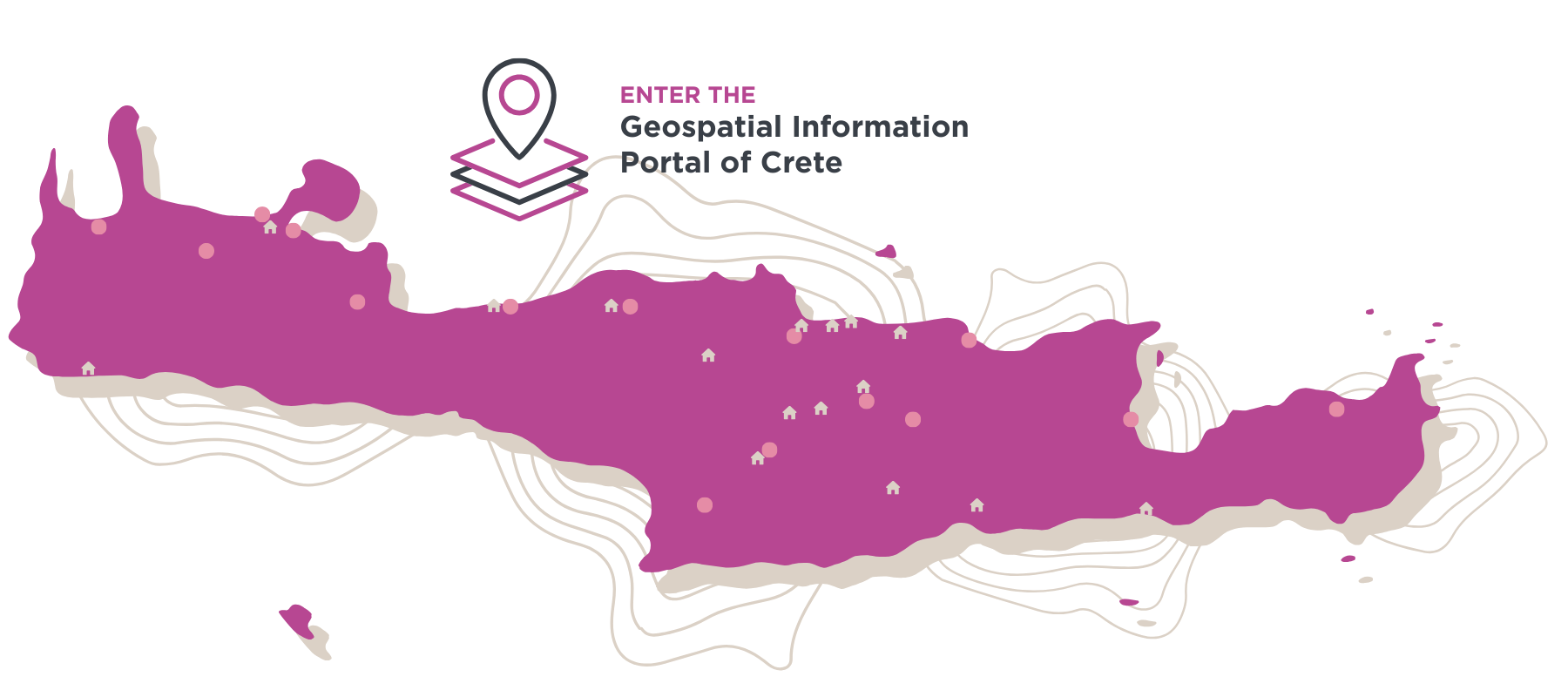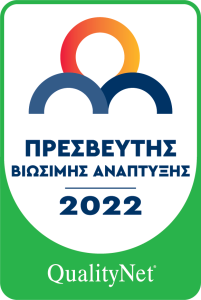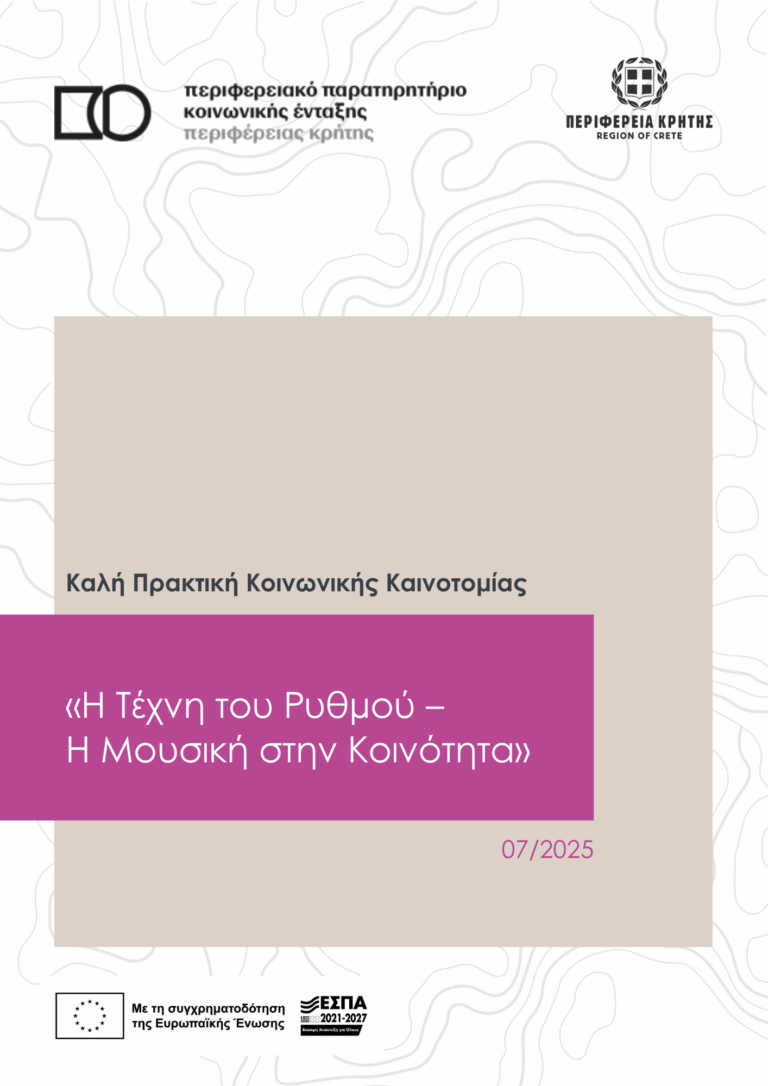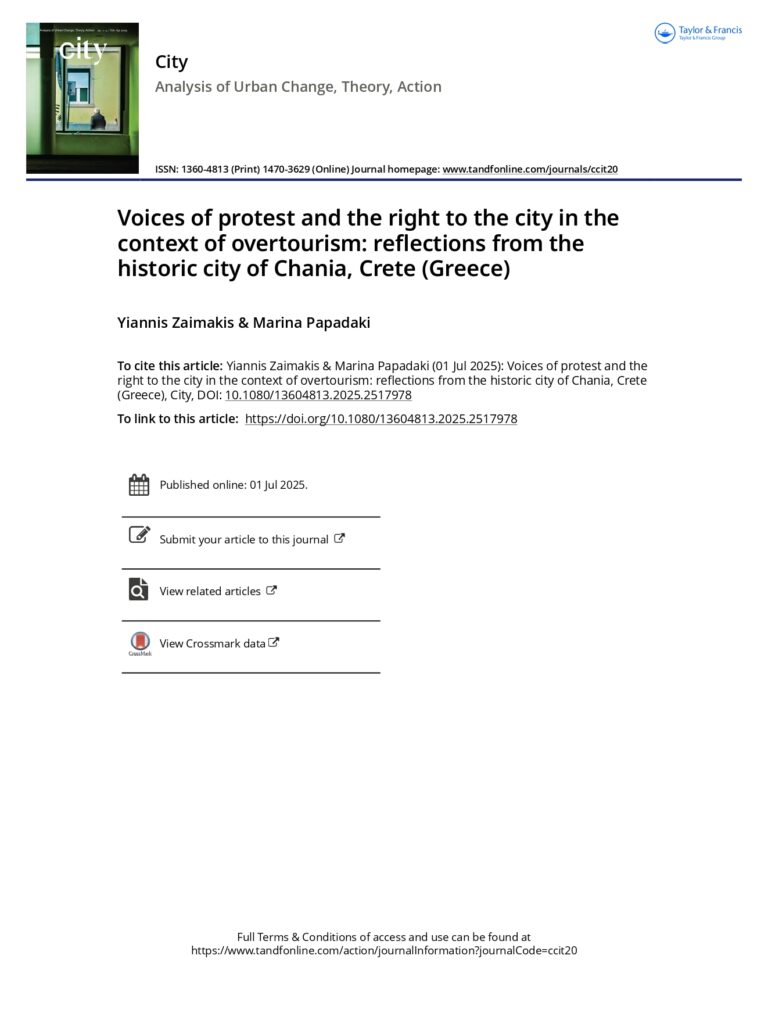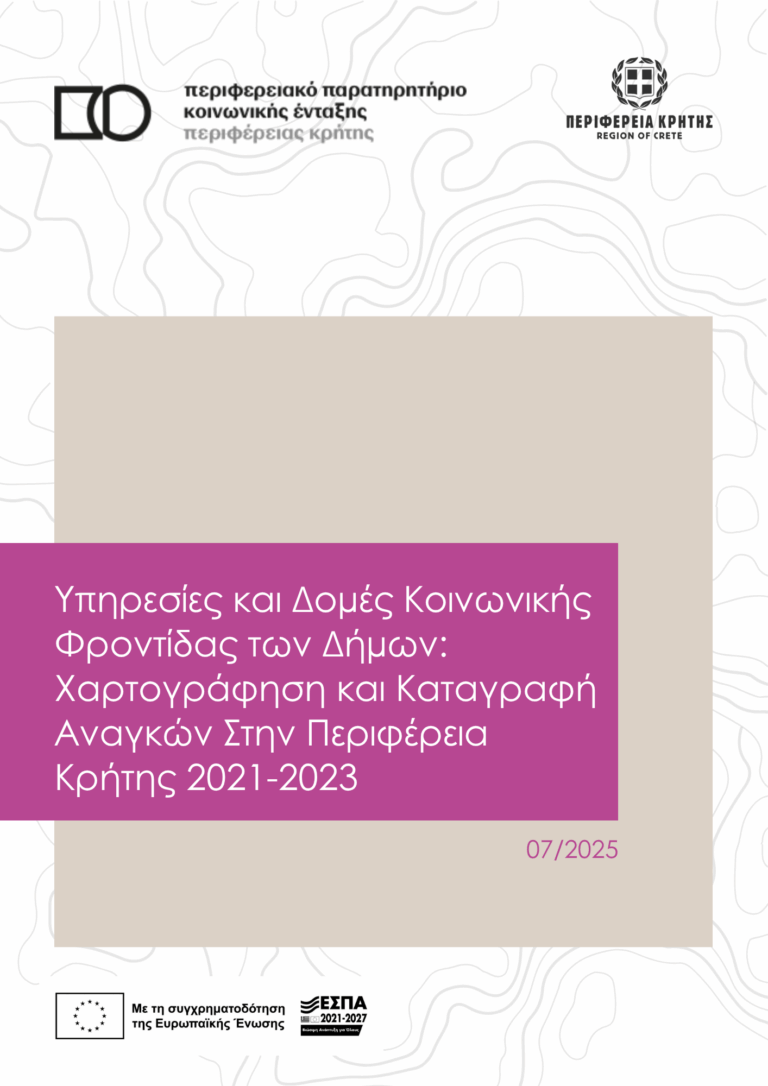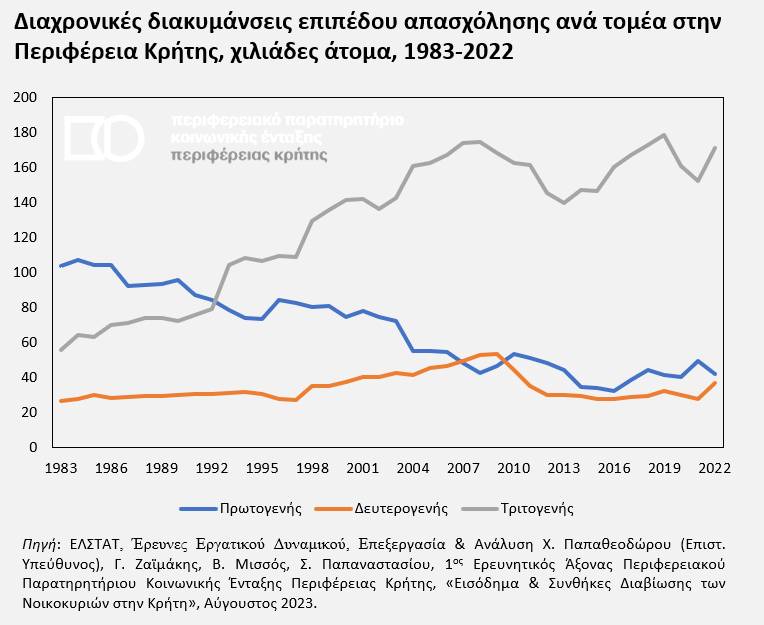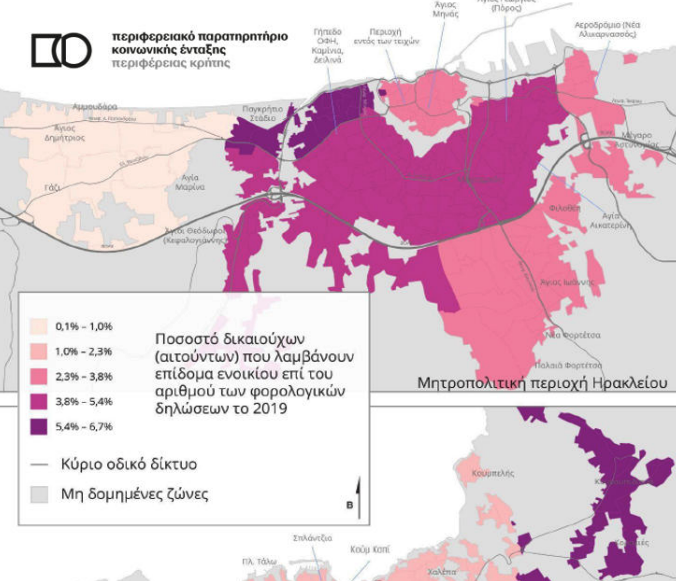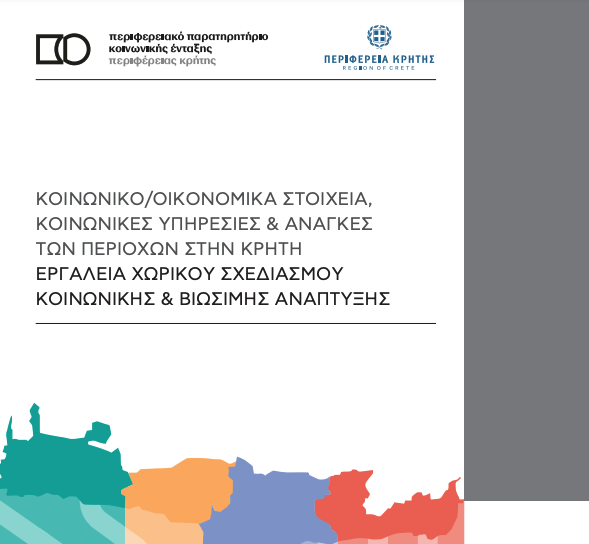Crete Regional Observatory for Social Inclusion
Learn moreLatest News
view all newsUpdate
Actions, Knowledge, Evolution
Discover our actions, find out about events and access useful publications and information from the Observatory.
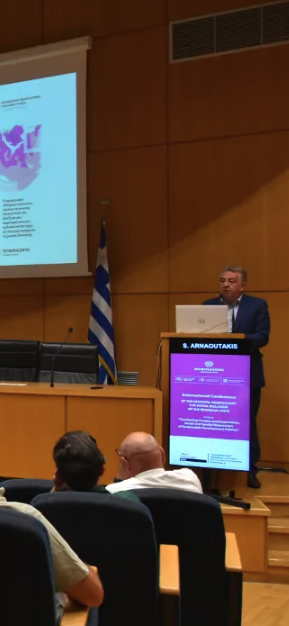
Local Forums & Consultation
Bridging knowledge and society
An open platform for dialogue with society to identify local needs and design effective social policies.
Read more
Interactive Maps and Tools
The Social and Spatial Map of Crete
Navigate to services, data and information that show where and how social and public policies are implemented in Crete.
Mapping of social policy services and institutions in the Region of Crete
Navigate to data and information on social services and actions implemented in the Region of Crete.
Read moreGeospatial Information Portal of the Region of Crete
Search and download geospatial data, maps, documents and documentation for spatial planning and public policies in the Region of Crete.
Read moreRequest access to available data for Social Policy Planning
Read more